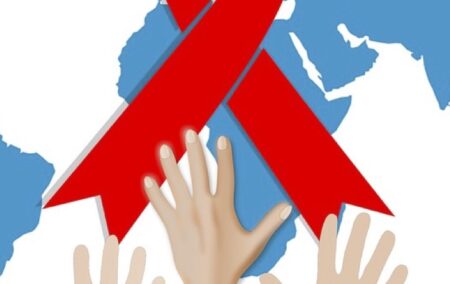The USA may cut support to SA’s AIDS programme because of grossly suboptimal epidemic control.
US global AIDS co-ordinator Deborah Birx has recently warned that Pepfar’s funding to SA to support its AIDS programme may be cut from a proposed $1.2bn over two years to $400m in the next year. Pepfar (the President’s Emergency Plan for AIDS Relief) was initiated by President George W Bush and has played a hefty part in countering AIDS in SA and elsewhere.
US funding may be reduced in this way because progress in Pepfar’s core treatment programme in SA, says Birx, is ‘grossly suboptimal and insufficient to reach epidemic control’. A key factor seems to be that more people stopped treatment in 2018 than started it that year, making for a poor retention rate.
In addition, progress in curbing new HIV infections has been slow, with 270 000 new infections recorded in 2017. On this basis, the number of people living with AIDS will soon rise from roughly 7.2m in 2017 to 8m or more.
Pepfar is arguably the key reason for SA’s success in rolling-out of ARV treatment programme to some 4.4m people. Pepfar has provided $6.23bn since 2004. It has also played a vital role in rolling out clinics and training nurses, among other things.
Without Pepfar’s help, it is questionable how much SA’s health department would have achieved. (Yet the ANC prefers not to publicise that help, choosing rather to rail against US ‘imperialism’ in Venezuela and elsewhere.) However, the US has now implicitly signalled that SA is so faltering in the fight against AIDS that Pepfar funds might be better used elsewhere.
This warning points to the manifold inefficiencies in SA’s public health system. These flaws have to be overcome if the inherently unworkable National Health Insurance (NHI) scheme – which the ANC is determined to press ahead with implementing after the May election – is to have any hope of succeeding.
Health minister Dr Aaron Motsoaledi has tried to gloss over the problems in the public health sector by citing its successes on HIV/AIDS. That SA has the biggest ARV treatment programme in the world, he says, shows public sector strengths which NHI critics deny. However, Birx’s concerns point to weaknesses the minister has failed to acknowledge.
The health department also persists in downplaying other major problems in public healthcare. The Office of Health Standards Compliance (OHSC) has repeatedly found that roughly 90% of public hospitals and clinics fail to comply with basic norms and standards. But the department dismisses these as practice or ‘mock’ evaluations that seemingly need not be taken seriously.
It has responded to a surge in legal claims for medical negligence at public hospitals (the state’s contingent liability now exceeds R80bn) by blaming lawyers for exaggerating wrongdoing. It has also put forward a bill seeking to limit the state’s compensation payouts to victims of proven medical negligence.
Instead of focusing on fixing the public sector, the ANC remains intent on restricting the private sector’s role in healthcare. Under the Medical Schemes Amendment Bill of 2018, it plans to confine all medical schemes to covering a single package of health services in return for (inadequate) monthly contributions decided by the state. When the NHI takes effect, it will push remaining medical schemes out of business altogether by barring them from ‘duplicating’ any of the comprehensive health services the NHI will promise to cover.
The ANC’s ultimate aim, as Motsoaledi says, is to ‘collapse’ all medical schemes into ‘a single state-run medical aid plan’: the NHI Fund. The NHI Fund will then purchase and pay for all the healthcare goods and services needed every year by some 57 million people. In addition, it will implement price and other controls on every aspect of healthcare, from the cost of aspirin and rubber gloves to the health technologies to be allowed.
The NHI will effectively give the state a monopoly over healthcare. However, this monopoly is unlikely to be any more efficient than the state’s existing monopolies over electricity (Eskom), commuter rail transport (Prasa), or off-shore gas exploration (Petro SA).
The ANC’s focus on ending private healthcare rather than fixing the many flaws in the current public health sector is driven by its ideology. As part of its national democratic revolution (NDR), it is determined to ‘decommodify’ healthcare. This is all part of a long-term NDR aim to ‘de-link’ people from the capitalist system and usher in a socialist and then communist nirvana.
The health department cannot properly manage its existing resources, yet the ANC alliance is determined to push out the private sector and achieve complete state control over healthcare. It considers its NDR ideology far more important than the welfare of South Africans, to which it shows a callous indifference.
Those who think a solid ANC victory in the coming general election will strengthen President Cyril Ramaphosa and allow him to implement business-friendly reforms are turning a blind eye to ANC ideology – and how strongly it has dictated ANC conduct over 50 years and more.
Dr Anthea Jeffery, Head of Policy Research, IRR. Jeffery is also the author of People’s War: New Light on the Struggle for South Africa, soon to be available in all good bookstores in abridged and updated form.
If you like what you have just read, become a Friend of the IRR if you aren’t already one by SMSing your name to 32823 or clicking here. Each SMS costs R1.’ Terms & Conditions Apply.

